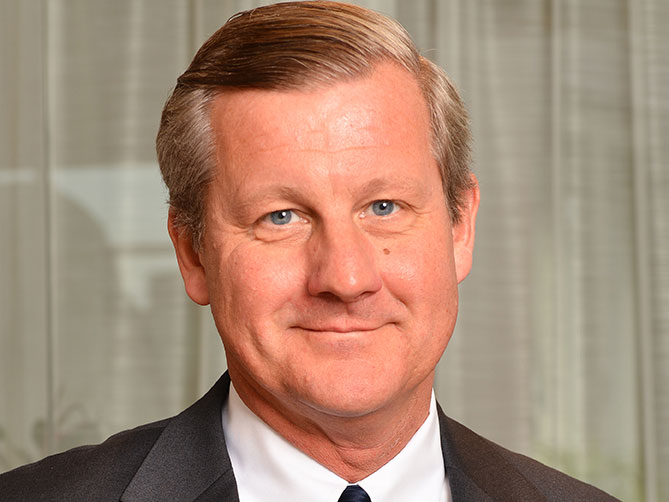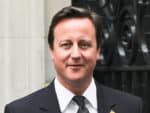Nordic hedge funds on Brexit
Stockholm (HedgeNordic) – Once again, what seamed perfectly sound, fun and reasonable the day before has consequences the day after. All too often after a good ride it seems, one wakes up with a headache and hangover and has regrets of last nights undertakings, hoping “I did not really do that, did I?”. Well, not-so-much-more United Kingdom, you did! You took must of us by surprise, and what started out as a domestic dispute within one political party and looked like an easy way out of an inconvenience last Friday became a major, major “situation” of global dimensions. HedgeNordic made a round call to Nordic hedge fund managers and asked three questions (1) What is your reaction to Brexit? (2) How is/was your portfolio positioned for this scenario? (3) Has the portfolio suffered immediate profit/losses from trading since Friday? to which you can find the responses below:
“Good morning everyone, the country has just taken part in a giant democratic exercise, perhaps the biggest in our history. The British people have voted to leave the European Union and their will must be respected.” (David Cameron, 24th June 2016)
Stefan Roos, Managing Partner, Origo Capital

We have a very fundamental and long-term investment strategy with a strict focus on Nordic small caps, with at least 3-5 years horizon for each individual investment. This strategy doesn’t alter even when single market shocks occurs, such as the Brexit event. However our view on the general market has been rather negative since the autumn of 2015 and since then we have reduced the Funds’s net exposure by short selling individual stocks and using derivatives. We maintain our neutral to slightly negative stance to the general market for the upcoming 6-12 months, this is based of on-going uncertainties regarding global growth, geopolitical issues and the investment cycle.
Miikka Hautamäki, CIO, Gramont Capital

We did not take a concentrated bet on the outcome of the Brexit vote as such, as we generally try not to position for binary political events. However, we were net short going in to it, due to our overall negative view on the equity markets. We traded actively throughout the day as our plan was to capitalize on the post-vote volatility. The Fund ended up ca. 3% for the day. As of Friday’s close, we were up 6% for the month and 13% year to date.
We welcome the increased volatility Brexit brought, and aim to further benefit from it. Previously we have performed well under volatile market conditions and think equity market dislocations are likely to provide attractive investment opportunities, particularly in our Special Situations strategy.
We think the investment environment is likely to remain volatile and challenging. The fundamentals have weakened with high equity market valuations and weak earnings outlook. Uncertainty related to global growth also remains heightened.
Tommi Kemppainen, Portfolio Manager HCP Black Multi-Strategy

Brexit is only one spasms of a series of spasms to expect. The main illness is about the global total amount of debt that is much too large. Crispin Odey, Ray Dalio, Michael Spence, John Hussman, Soros and originally Irwing Fisher has explained this.
HCP Black gained a bit over brexit. Is positioned so that we are able to confront even a global depression (yes – not only recession).
Ernst Grönblom, Portfolio Manager, HCP Focus Fund
My reaction was complex; more disappointment than chock. I was once again reminded of the wisdom of one of my favourite quotes: “An nescis, mi fili, quantilla prudentia mundus regatur?” (“Do you not know, my son, with how little wisdom the world is governed?”), by Axel Oxenstierna, Lord High Chancellor of Sweden 1612-1654. I do not identify myself as a Eurosceptic; on the contrary, I think the ultimate motives of the grand European project (peace and stability through trade on open markets) are in all respects laudable. However, since the financial and Euro crisis, I have become increasingly sceptical as to the pace and practical implementation of the project. Brexit strengthened my scepticism in this regard.
I follow a concentrated, long-only equity strategy. One of the cornerstones of my strategy is to invest in companies that I believe are more or less “antifragile” (i.e. companies that counterintuitively benefit from chocks and radical change, at least in the long-run, in the sense described by Mr Taleb). Furthermore, my portfolio has relatively little UK or Euro –exposure (only one European company), and relatively little exposure to the financial industry (no banks). Going into the referendum, I felt I was relatively well positioned to weather a potential storm. Consequently, I did not change my portfolio in advance of the referendum in order to position it for a possible Brexit. Since I firmly believe that market timing is a losing strategy, going into cash was also out of the question.
Karri Lehtinen, Managing Director MG Commodity Fund

The “unexpected” happened with the UK referendum to leave the EU, and that has injected volatility into global markets that will likely be felt over days and weeks to come. The shocking outcome against the British political establishment is something that could factor into the November US presidential election and could mark a further departure from the “same old, same old” in American politics. While this is a near-term negative force for risk-taking sentiment, prospects for a fresh wave of central bank liquidity, already accommodative monetary policy from G7 bankers, and downside corrections in a host of commodity markets are expected to attract renewed bargain-hunting interest. This is especially the case for those commodities with a positive fundamental backdrop, such as crude oil, grains (potentially), sugar, and copper. Meanwhile, US implied gasoline demand climbing to an all-time in last week’s EIA report, an improvement in US home sales figures and a new 8-week low in initial jobless claims offer hope for a sustainable recovery effort in the USA. Recent Chinese import figures support that outlook, with year-to-date imports of copper ore, crude oil and soybeans showing double-digit gains compared to year-ago levels.
Position before Brexit:We benefit from and hope for increased volatility but we did not take position on precious metals. We felt that these products had a possibility to have daily moves up to 10-15% at most. Even though we like high volatility we do not like abnormal moves that are difficult to delta hedge.
Johannes Asp, Madrague Capital Partners

We did not make significant changes to our positioning prior to the referendum. However, the financial sector was somewhat reduced and had a gross exposure of 12.2% and a net exposure of 1.33% (down from 5.11% start of the month).
Our downside protection in our Hedge book was also in place as always, giving us protection and flexibility in case of gap moves. Our financial sector lost c. 43bps during the two days following the vote, which is tolerable considering that the banks got the worst of the Brexit fallout.
The fund’s estimated performance MTD as per June 28th is c. -0.9%, bringing the YTD figure to +1.75%. Again we find this to be tolerable as the Estoxx50 is down -9.4% MTD and -15.1% on the year.
We also find that there are plenty of opportunities following the recent moves in equity markets, one example would be long positions in domestic UK banks. Madrague has historically been able to outperform in environments like this, and we don’t believe that this time should be any different.
Accum Capital
Ahead of the Brexit vote, our strategies were positioned less aggressively compared to their respective risk targets.
The Capital Preservation Strategy (CPS) currently has 15 positions. 73 per cent of the exposure is market neutral. A majority of the positions having market exposure, a majority delivered positive returns during the significant market downturn experienced on Friday, thanks to liquid hedge positions. Our view is that some of these contracts could be in for corrections in the coming days but that the total effect is manageable and that CPS is likely to deliver positive returns for the month of June. At the time of writing, the CPS fund has gained 0.5% in June.
The Capital Growth Strategy (CGS) currently has 13 positions out of which 2 positions (approximately 16% risk weight) have a direct correlation with the equity market. We judge that another 5 positions (approximately 41% risk weight) could be marginally affected of the increased volatility in the coming days. Based on the communication we have had with the portfolio management teams in the last days and hours, we can conclude that all holdings are trading within expected ranges. At the time of writing, CGS has posted losses of 1.1% on the month, which is satisfying given that the Swedish equities have lost 8.2% so far in June (-13% on the year and -22% during the last 12 months).
Michael Steenbom, Risk & Portfolio Management – RPM

Disregarding the potentially gloomy political implications of the British “Brexit” vote, we can conclude that RPMs CTA funds; RPM Evolving CTA fund and RPM Galaxy delivered strong returns on midsummer’s eve. Evolving E SEK gained 5.9%, Galaxy SEK gained 6.4%.
Gains were made in international fixed income contracts such as Gilts and T-bonds, in FX – EUR,JPY and GBP as well as in precious metals. Losses were seen in relatively small positions in equity indices.
“It is way too early to determine whether this marks the start of a sustained equity market bear market. If that proves to be the case, RPMs funds look well positioned to profit from the price trends that usually emerge when significant equity market downturns occur. Regardless of the longer-term fallout in equity markets, we are pleased to have delivered compensating returns in what was a rough day for equity investors”.
At the time of writing, at 12 hours CET on June 27, indicative valuations show that Evolving and Galaxy have gained 2.14% and 3,29% respectively. In light of the significant market volatility these values are likely to deviate significantly at the time the market has closed.
